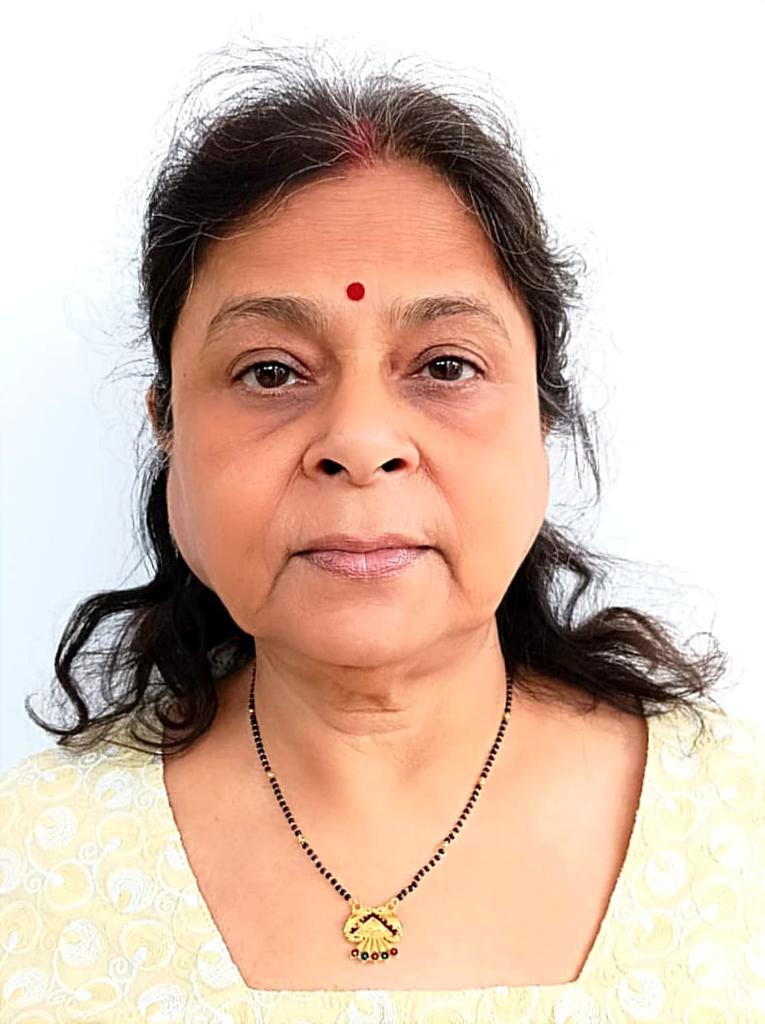How To Reduce Internal Body Heat?
Learn how to reduce internal body heat with effective home remedies, hydration tips, cooling foods, and lifestyle changes. Stay cool and prevent overheating with natural and medical solutions.

Written by Dr.Sonia Bhatt
Last updated on 3rd Jul, 2025
Introduction
Regulating internal body heat is essential for maintaining overall health and preventing heat-related issues. Excessive internal heat can lead to discomfort, dehydration, and even serious health complications. Understanding the causes, symptoms, and natural ways to manage body heat can help individuals stay cool and balanced. In this article, we will explore effective strategies to reduce internal body heat.
1. Understanding Internal Body Heat
Internal body heat is a natural result of metabolic processes and external influences. The body works to maintain a stable temperature, but certain factors can disrupt this balance, leading to overheating. Common causes of increased body heat include hot weather, intense physical activity, spicy foods, dehydration, and medical conditions such as hyperthyroidism.
2. Symptoms and Causes of Increased Body Heat
An increase in body heat, also known as heat stress or hyperthermia, can result from various internal and external factors. It may lead to discomfort and, in severe cases, serious health complications.
1. Symptoms of increased body heat:
Excessive sweating
Dehydration
Flushed skin
Headache
Fatigue
Nausea or dizziness
Increased heart rate
Confusion or fainting
2. Causes of increased body heat:
Hot weather conditions – Exposure to high temperatures, especially in humid environments.
Intense physical activity – Exercise or strenuous work raises body temperature.
Dehydration – Lack of sufficient water intake reduces the body’s cooling ability.
Spicy or hot foods – Certain foods can raise internal body heat.
Medical conditions – Fever, infections, or thyroid disorders can contribute to increased body temperature.
Tight or layered clothing – Restricts heat dissipation.
Stress and anxiety – Emotional stress can cause the body to overheat.
Medication side effects – Some drugs can interfere with the body's temperature regulation.
Natural Cooling Mechanisms of the Body
The human body has built-in mechanisms to regulate temperature and prevent overheating. These natural cooling processes help maintain a stable internal environment, ensuring overall health and well-being.
1. The Role of Body Temperature Regulation
The body’s ability to regulate temperature is essential for survival. The hypothalamus, located in the brain, acts as the body's thermostat, detecting temperature changes and activating cooling mechanisms. It helps prevent overheating by triggering responses such as sweating and increased blood circulation, ensuring a balanced internal temperature.
2. How Sweating Helps Cool the Body?
Sweating is one of the body's most effective ways to regulate heat. When the body temperature rises, sweat glands release moisture onto the skin. As this sweat evaporates, it absorbs and dissipates excess heat, helping to cool the body. However, factors such as dehydration, high humidity, or excessive heat exposure can hinder this process, leading to heat retention and potential health risks.
Dietary Modifications to Reduce Body Heat
What you eat plays a significant role in managing body heat. Some foods help cool the body, while others contribute to overheating.
1. Foods to Eat for Cooling
Including cooling foods in your diet can help regulate body temperature and prevent overheating:
Water-rich fruits – Fruits like watermelon, cucumber, and oranges help hydrate and cool the body.
Coconut water – A natural source of hydration and electrolytes that replenishes lost fluids.
Leafy greens and fresh vegetables – These foods support cooling and aid in digestion.
Yoghurt and buttermilk – Help soothe digestion and maintain body temperature balance.
Herbal teas – Peppermint and chamomile teas have natural cooling properties.
2. Foods to Avoid
Certain foods can raise body temperature and should be limited in hot conditions:
Spicy foods – Stimulate heat production and increase body temperature.
Caffeinated and alcoholic beverages – Cause dehydration, making it harder for the body to cool down.
Fried and processed foods – Require more energy to digest, generating excess heat.
Red meat – Slows digestion and increases internal heat.
Sugary foods and carbonated drinks – Disrupt hydration levels and contribute to dehydration.
Hydration and Its Importance
Staying hydrated is essential for maintaining overall health and regulating body temperature. Water plays a crucial role in cooling the body and preventing heat-related issues.
1. How Water Helps in Body Temperature Regulation?
Water is vital for keeping body temperature in balance. Drinking enough fluids promotes sweat production, which helps cool the body through evaporation. Proper hydration also supports metabolic functions, ensuring that heat is efficiently managed and preventing the risk of overheating.
2. The Impact of Dehydration on Body Heat
Dehydration negatively affects the body’s ability to regulate temperature, leading to heat buildup and potential health risks. Key effects include:
Reduced sweat production – Limits the body’s natural cooling process, causing heat retention.
Increased risk of heat-related illnesses – Can lead to heat exhaustion or heat stroke.
Dry skin and dizziness – A sign of insufficient hydration affecting circulation and cooling.
Fatigue and weakness – Dehydration strains the body, reducing energy levels.
Rise in body temperature – Without enough fluids, internal heat increases, making it harder to stay cool.
Herbal and Home Remedies
Natural remedies can effectively help in cooling the body and preventing heat-related discomfort. Traditional herbs and simple home practices can regulate body temperature and provide relief.
1. Traditional Herbs for Cooling
Certain herbs have natural cooling properties that help maintain body temperature and improve digestion:
Coriander or fennel seed water – Aids digestion while providing a cooling effect.
Aloe vera juice – Hydrates the body and helps in internal cooling.
Hibiscus tea – Supports temperature regulation and refreshes the body.
Mint-based drinks – Offer a soothing and refreshing cooling effect.
2. Simple Home Remedies for Reducing Heat
Easy and effective home remedies can help bring down body temperature naturally:
Applying a cold compress – Placing it on pulse points helps cool the body quickly.
Taking a lukewarm or cold shower – Lowers body heat and provides instant relief.
Using wet towels – Applying them to the forehead and neck aids in cooling.
Sitting in a well-ventilated space – Allows air circulation for natural cooling.
Lifestyle Changes to Manage Body Heat
Making simple lifestyle adjustments can help regulate body temperature and prevent heat-related discomfort. Adopting healthy habits and choosing the right clothing can significantly impact how the body manages heat.
1. Importance of Regular Exercise
Engaging in moderate physical activity supports circulation and enhances the body's ability to regulate temperature through sweating. However, to prevent overheating:
Exercise during the cooler parts of the day, such as early morning or evening.
Stay hydrated before, during, and after physical activity.
Wear breathable clothing to aid heat dissipation.
2. Clothing Choices and Environmental Factors
The right clothing and environment play a crucial role in staying cool:
Wear light, breathable fabrics – Cotton and linen allow better airflow and reduce heat retention.
Avoid dark-coloured clothing – Dark shades absorb more heat, making the body warmer.
Stay in shaded or air-conditioned areas – Prevents excessive heat exposure during peak temperatures.
Use light bedding materials – Helps maintain a cool and comfortable sleep environment.
Consult Top General medicine specialist
Medical Conditions and Body Heat
Certain medical conditions can interfere with the body’s ability to regulate temperature, leading to increased body heat and potential health risks. Understanding these conditions can help in managing symptoms and preventing complications.
1. Common Medical Conditions Associated with Increased Body Heat
Certain conditions can contribute to excessive internal heat, including:
Hyperthyroidism, which increases metabolic heat production
Infections and fevers, causing temporary heat elevation
Side effects of certain medications that interfere with temperature regulation
2. When to Seek Medical Advice?
Seek medical attention if you experience:
Persistent body temperature above 39.4°C (103°F)
Prolonged fever lasting over 48 hours
Severe symptoms like dizziness, confusion, or difficulty breathing
Signs of heatstroke, including unconsciousness or seizures
Short-Term vs Long-Term Strategies
Managing body heat effectively requires both immediate cooling methods and long-term lifestyle adjustments. Combining quick fixes with sustainable habits can help maintain a stable body temperature.
1. Quick Ways to Cool Down
When experiencing sudden heat buildup, these methods provide fast relief:
Drink a glass of cool water – Helps lower internal body temperature.
Apply ice packs to pulse points – Cooling the wrists, neck, or temples speeds up heat dissipation.
Move to a cooler environment – Seeking shade or air-conditioned spaces prevents further overheating.
Take a cold shower – Lowers body heat and provides instant refreshment.
2. Long-Term Approaches for Stable Body Temperature
For consistent temperature regulation, adopting these habits is beneficial:
Maintain a balanced diet – Include cooling foods like fruits, vegetables, and yoghurt.
Stay consistently hydrated – Drink enough water throughout the day to prevent dehydration.
Practise mindfulness and stress management – Reducing stress minimises heat-related discomfort.
Make seasonal adjustments – Wear appropriate clothing and modify living spaces to stay cool.
Conclusion
Managing internal body heat is essential for overall well-being. By making small yet effective changes in diet, hydration, and lifestyle, individuals can maintain a balanced body temperature. Recognising early signs of overheating and taking preventive measures ensures comfort and long-term health. However, in cases of extreme heat-related symptoms, seeking medical attention is advised.
Consult Top General medicine specialist
Consult Top General medicine specialist

Dr. Arun Kohli
General Practitioner
25 Years • MD (Physician)
New Delhi
RAINBOW WELLNESS CENTRE, New Delhi

Dr. Sunil Nigam
General Physician/ Internal Medicine Specialist
48 Years • MBBS, MD ( General Medicine)
New Delhi
VIVA VISION, New Delhi

Dr. Arpit Pandey
General Practitioner
7 Years • MD (Physician)
Gurugram
MedVain, Gurugram
(25+ Patients)

Dr. Karan Goel
General Physician/ Internal Medicine Specialist
11 Years • MBBS, MD (Paediatrics)
Kolkata
Little Steps Clinic, Kolkata

Dr. Ms. Bhaswati
General Practitioner
30 Years • MBBS
Kolkata
BARASAT POLYCLINIC & DIAGNOSTIC CENTER, Kolkata
Consult Top General medicine specialist

Dr. Arun Kohli
General Practitioner
25 Years • MD (Physician)
New Delhi
RAINBOW WELLNESS CENTRE, New Delhi

Dr. Sunil Nigam
General Physician/ Internal Medicine Specialist
48 Years • MBBS, MD ( General Medicine)
New Delhi
VIVA VISION, New Delhi

Dr. Arpit Pandey
General Practitioner
7 Years • MD (Physician)
Gurugram
MedVain, Gurugram
(25+ Patients)

Dr. Karan Goel
General Physician/ Internal Medicine Specialist
11 Years • MBBS, MD (Paediatrics)
Kolkata
Little Steps Clinic, Kolkata

Dr. Ms. Bhaswati
General Practitioner
30 Years • MBBS
Kolkata
BARASAT POLYCLINIC & DIAGNOSTIC CENTER, Kolkata
